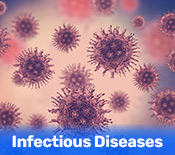Alzheimer's Disease: Symptoms, Progression & Impacts
According to the study, the UAE's dementia cases are estimated to increase by a staggering 1,795% by 2050, while Qatar and Bahrain are expected to see significant increases of 1,926% and 1,084% in dementia cases, respectively.
The World Health Organization reports that over 55 million individuals are currently affected by dementia globally, with almost 10 million new cases arising annually.
A recent study published in Lancet Public Health highlights that the UAE and other Gulf nations are projected to experience the most substantial rises in dementia prevalence over the next three decades.
Image Soure: Wikipedia
As per the study, the UAE's dementia cases are estimated to increase by a staggering 1,795% by 2050, while Qatar and Bahrain are expected to see significant increases of 1,926% and 1,084% in dementia cases, respectively.
Dementia serves as a broad umbrella term encompassing these cognitive impairments, whereas Alzheimer's disease stands out as the most prevalent form of dementia, known to progress over time. Initiating timely interventions can greatly assist in gaining a deeper comprehension of one’s symptoms and effectively managing them.
Let’s talk about how to spot early signs of Alzheimer’s, possible preventative measures, and the best way to brace oneself against the disease.
Disclaimer: This article is for informational purposes only and is not intended to be a substitute for professional medical advice. Connect with your doctor or a qualified healthcare professional if you have further questions or any medical concerns.
What is Alzheimer’s?
Alzheimer's disease is a progressive brain disorder that leads to cognitive decline and memory loss.
It is marked by the accumulation of specific proteins in the brain, which causes the deterioration and eventual death of brain cells.
This degenerative condition is the primary cause of dementia, a broader term encompassing the gradual deterioration of memory, thinking abilities, behaviour, and social skills, significantly affecting an individual's daily functioning.
As the population ages, the prevalence of Alzheimer's disease is believed to be on the rise, posing significant challenges to healthcare systems and society as a whole.
How to Spot Early Signs and Progression?
Image Source: Medicover Hospitals
The initial signs of Alzheimer's disease often manifest as mild memory lapses. Individuals may struggle to recall recent conversations or events, indicating a decline in short-term memory.
As the disease advances, these lapses become more pronounced and start to interfere with daily activities. While individuals in the early stages may recognise their cognitive challenges, as the disease progresses, family members or friends are more likely to notice the cognitive decline.
The hallmark symptoms that manifest as the disease progresses include:
- Memory Loss: Persistent and worsening memory loss is a key symptom. Individuals with Alzheimer's disease may repetitively ask the same questions or forget crucial appointments and conversations.
- Reasoning and Thinking: Abstract thinking becomes increasingly difficult and multitasking can become a challenge with Alzheimer’s. Handling complex tasks, such as financial management, becomes problematic, with a decline in the ability to recognise and manage numbers.
- Decision-Making: Alzheimer's disease also affects the ability to make sound decisions, leading to poor judgments in various situations. Everyday tasks like dressing appropriately for the weather or managing cooking may become daunting.
- Performance of Familiar Tasks: Routine activities that involve sequential steps become more challenging. This can lead to difficulty in the execution of tasks like cooking or engagement in hobbies.
- Personality and Behaviour Changes: The disease's impact extends to mood and behaviour alterations. Individuals may experience depression, loss of interest in activities, mood swings, and even aggression. Changes in sleeping patterns and social withdrawal can also occur.
- Preserved Skills: Despite the cognitive decline, certain skills may remain intact for a longer duration. These skills often involve creative or artistic pursuits, like reading, storytelling, music appreciation, and artistic expression.
Diagnosis and Management
The diagnosis of Alzheimer's disease is primarily clinical, involving detailed medical history, cognitive assessments, and sometimes neuroimaging. Early diagnosis allows individuals and their families to plan for the future, access available treatments, and engage in support services.
While there is no cure for Alzheimer's disease, several medications to manage its symptoms and potentially slow its progression are available out there. These medications work by influencing neurotransmitters and brain chemistry.
Additionally, non-pharmacological interventions, such as cognitive training, physical exercise, and social engagement, have shown promise in improving cognitive function and overall well-being.
How to Care for Someone with Alzheimer’s?
Caring for an individual with Alzheimer's disease presents unique challenges. Caregivers play a crucial role in ensuring the individual's safety, managing medications, and providing emotional support.
As the disease advances, caregivers often face increasing demands, potentially impacting their own physical and emotional well-being. Support groups, respite care, and community resources can provide caregivers with the tools and assistance that they need to navigate this challenging journey.
Retained Abilities
Despite the considerable shifts in memory and capabilities, individuals with Alzheimer's disease often retain certain skills even as their symptoms deteriorate. As mentioned earlier, these enduring skills might include activities like reading, listening to stories, sharing recollections, singing, enjoying music, dancing, artistic pursuits, and crafting.
This prolonged preservation of skills can be attributed to the fact that these abilities are governed by brain regions that tend to be impacted later in the progression of the disease.
When to Seek Medical Advice?
Memory loss and dementia symptoms can arise from various underlying conditions, some of which are treatable. If you're experiencing concerns regarding your memory or cognitive abilities, it's advisable to consult with a healthcare professional.
Likewise, if you've noticed worrisome changes in the thinking skills of a family member or friend, it's a good idea to openly discuss your observations and consider the option of seeking guidance from a healthcare provider together.
How Does Health Insurance Prepare You for the Worst?
Critical illness cover is an insurance product that provides financial protection and support in the event of a serious medical condition. While it is often associated with conditions like heart attacks, strokes, and various cancers, its significance extends to over 36 such chronic illnesses as well.
Critical illness insurance plans in the UAE can include Alzheimer’s disease. On the diagnosis of this ailment, a lump sum amount is provided by the insurer (subject to certain conditions). With this sum, the patient and their family can easily cover the medical expenses, daily requirements, and more. By offering financial relief to both individuals and caregivers, critical illness cover contributes to enhanced quality of life, access to necessary care, and the ability to navigate the complexities of Alzheimer's disease with greater ease and confidence.
To Conclude
Alzheimer's disease remains a complex and challenging condition that affects not only individuals but also their families and society at large. Early recognition of symptoms, comprehensive diagnosis, and a holistic approach to management are essential for improving the quality of life for those living with Alzheimer's disease as well as their caregivers.
As research continues to shed light on the mechanisms underlying the disease, there is optimism that more effective treatments and preventive strategies will emerge, offering hope for a future with better outcomes for those affected by this debilitating disorder.
More From Health Insurance
- Similar Articles
- Recent Articles
- Popular Articles




























